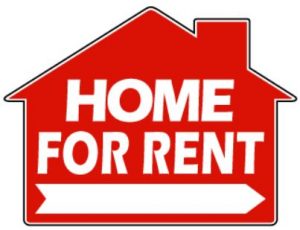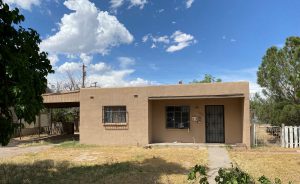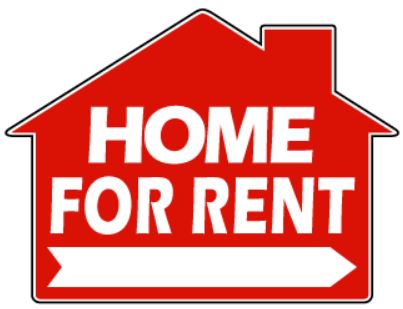Being a landlord and managing your own property often involves a lot more work than people want to believe. It’s a very time-consuming job and often takes just as much time as having another full-time job! This can be exhausting, and even more so if you already have another demanding career. Renting out a property can be an overwhelming task for many people.
Following is just a few of the issues landlords tend to have:
- Lack of Knowledge on Fair Housing, State and Local Laws
- Finding the Right Tenant
- On the Clock 24/7, 7 days a week, 52 weeks a year
- Long Vacancy Periods
- Juggling Multiple Properties
LACK OF KNOWLEDGE ON FAIR HOUSING, STATE AND LOCAL LAWS
Do you have the knowledge around the laws pertaining to real estate, fair housing laws, and even some local laws that might affect homes? Chances are you do not have this background.
While it is possible to manage properties on your own without taking a real estate exam or a property management class, it’s much harder to navigate around the many laws in place to regulate tenant and landlord interaction.
For example, you might decide that you don’t want to rent to college students because you feel that they might damage your home. This is a fair housing violation. Same goes for renting to individuals with children.
Do you know what to do when you have tenant disputes, or how to deal with lease breaks or even roommate changes?
It can be easy to accidentally break a law that you didn’t know about. If that happens, you could be looking at a lawsuit, fines, and future issues with tenants.
It would take a large amount of time to research all the ins and outs of these laws and it still might not prepare you enough for every situation that might come up.
FINDING THE RIGHT TENANT
When you select a tenant, it tends to become more of a personal decision than a business transaction. As nice as it might be to be friendly with your tenants, it is better and easier in the long run to keep the relationship professional.

If you get too close with your tenants, they may ask for leniency on late rent payments, pet rules or deposits, and guests in the home. This can lead to them taking advantage of you and you losing out on profit.
Selecting the tenant is an important task that can affect you in the short term and long term. You might think it is a great idea to rent to a friend or relative, but that can create problems down the road.
If your tenant is already a friend or family member, this task is even more difficult. It’s hard to be a fair, unbiased landlord when the tenant is your cousin, sibling, in-law, etc.
Also, how do you know that you are optimizing your rent amount appropriately? Oftentimes, landlords set the rent too low or too high and miss attracting the right tenant.
ON THE CLOCK 24/7, 7 DAYS A WEEK, 52 WEEKS A YEAR
When you manage your own property, tenants can call you whenever there is an issue. This could be something as minor as a torn screen on a window to the AC stopped working to a leak in the roof. When you receive a call, you must either immediately go to the property yourself or call a vendor or contractor.
If you don’t have a contact list of reliable vendors and contractors, these minor emergencies can be a bigger hassle. Each time a new problem arises, you have to research the right company to handle the situation.
 Not only is this stressful, but it interrupts your daily life. You could be at your child’s or grandchild’s sporting event, at a movie or even sound asleep in the middle of the night and get an urgent call from a tenant! It can get increasingly frustrating to have these interruptions when you least expect them.
Not only is this stressful, but it interrupts your daily life. You could be at your child’s or grandchild’s sporting event, at a movie or even sound asleep in the middle of the night and get an urgent call from a tenant! It can get increasingly frustrating to have these interruptions when you least expect them.
Another question is have you set aside money each month or every couple of months for routine maintenance as well as do you have enough reserves to cover large emergency repairs? The best way to prevent hefty maintenance repairs is to routinely check for minor issues. Have you set up a process to do routine maintenance checks legally without infringing on your tenants’ privacy?
Now to discuss the main reason for owning and renting a property, the income. You are responsible for rent collection. This means that at the first of the month, you need to make sure you receive payment from your tenants. This can get complicated if you are managing more than one property.
If a tenant is late on rent, you have to keep track of that as well. Some tenants might not be as reliable and consistently pay you later than expected. You have to keep track of who has paid and who hasn’t, and how many days late they are so you can charge them an appropriate late fee. And, are you compliant with the state’s laws on how much you can charge in late fees?
LONG VACANCY PERIODS
Another downside of rentals is vacancy after tenants have moved out.
There is always maintenance and cleaning to be done to get a property ready for the next tenants no matter how good of tenants you had. As mentioned before, have you set enough money aside to take care of the maintenance and cleaning? This also leads to the fact that you need money for marketing to attract the best new tenant.
Handling all the marketing can be a hassle too. You’ll need decent photos of the interior and exterior of the home and good descriptions for the websites you’ll list on.
Homes that have subpar photos on Zillow, Facebook, Craigslist, etc. struggle to get as many showings and as much interest as well-photographed homes. These days, people have shorter attentions spans and want to be immediately pulled in by your advertisements.
The less effective your marketing skills are, the more likely it will be that your home sits vacant on the market for longer. Longer vacancy periods can affect the overall interest in your home as well as the asking rental price.
If a home sits vacant for 2-4 weeks with little to no interest, you’ll need to lower the asking rental price. These long vacancy periods matter because during this time, you won’t have any money coming in. Do you have enough reserves to cover a mortgage payment, utilities, taxes, insurance, yard maintenance, etc?
JUGGLING MULTIPLE PROPERTIES
 If you own more than one rental property, these problems only get more complicated. Being on call around the clock for one property is one thing, but multiply that by two, three, etc. and you could be in over your head.
If you own more than one rental property, these problems only get more complicated. Being on call around the clock for one property is one thing, but multiply that by two, three, etc. and you could be in over your head.
Some people get into the rental business in the hopes of having a side “passive” income, i.e. another way to make money outside of their current job. If this is the case for you, managing these properties on your own will likely take too much time away from your primary job.
Things also get complicated when you are managing money from multiple tenants. You don’t want to start losing track of who has paid, who hasn’t, who is late, etc. Unless you are highly organized, property accounting can be a major headache.
IN CLOSING…
These are some concerns to consider when deciding if being a landlord is right for you. Many people think they can handle it, but oftentimes it can be more time-consuming and expensive than they realize. The rewards end up not being greater than the work involved and the risks.

